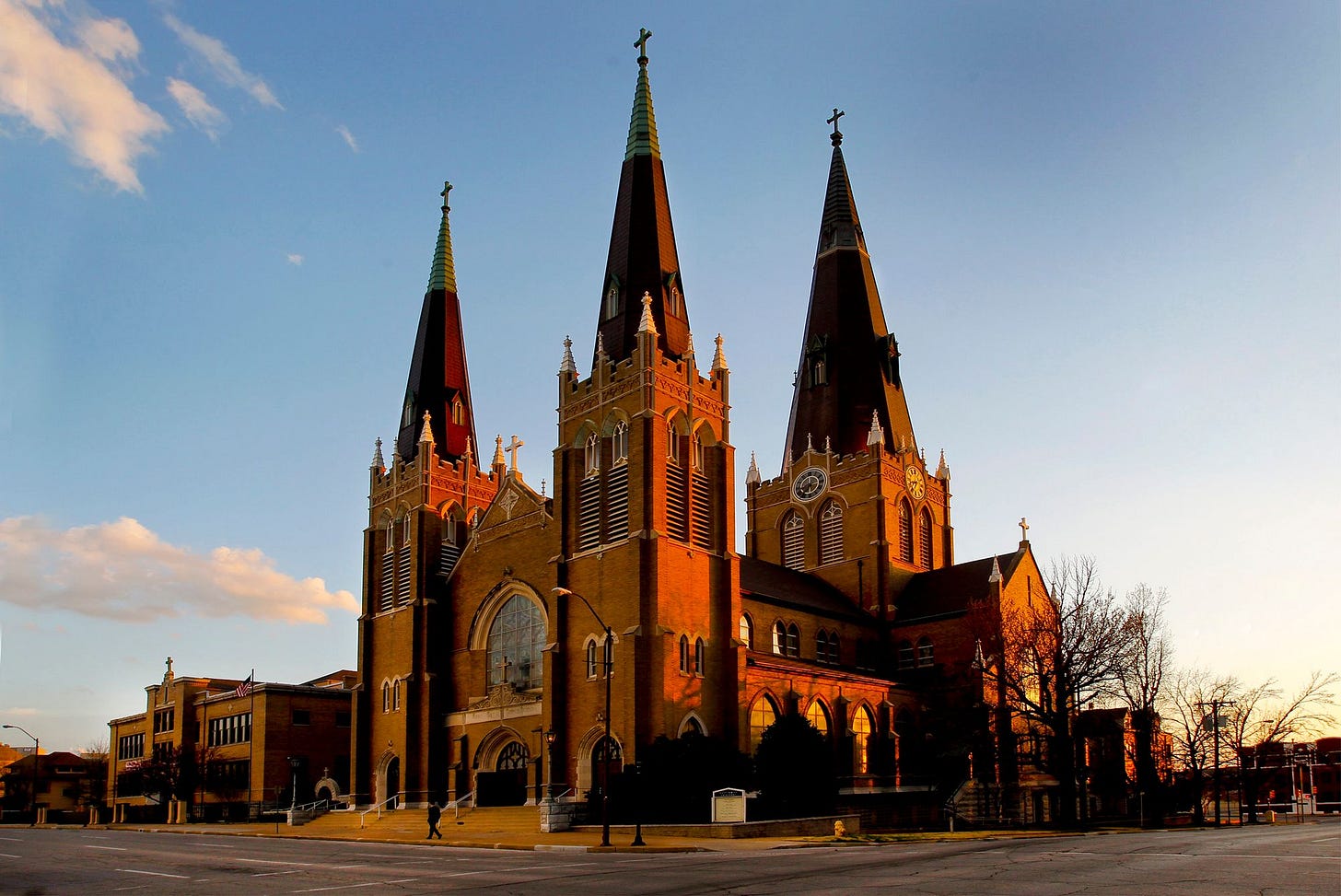After Tulsa cathedral attack, a ‘public witness to hope’
After an attack on his cathedral, Tulsa's bishop explains what gives him hope.

A Tulsa man was arrested Wednesday evening, hours after he approached the city’s Holy Family Cathedral, threw a Molotov cocktail at a bank of cathedral windows, and slashed a cathedral employee in the hand with a large sword.
The arrest of Daniel Edwards - and the man’s attack on the cathedral - made headlines quickly, as it came as the latest in a serie…
